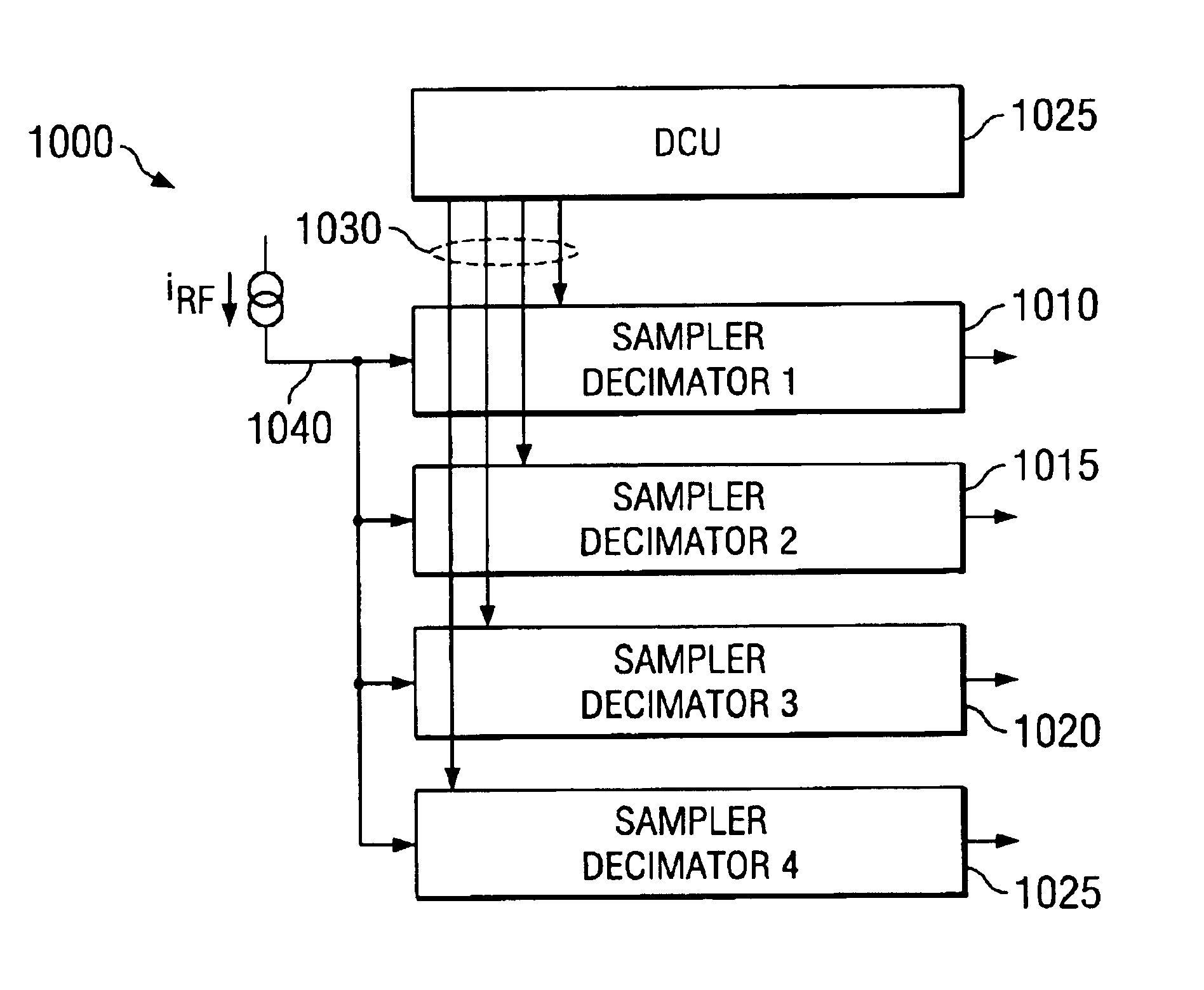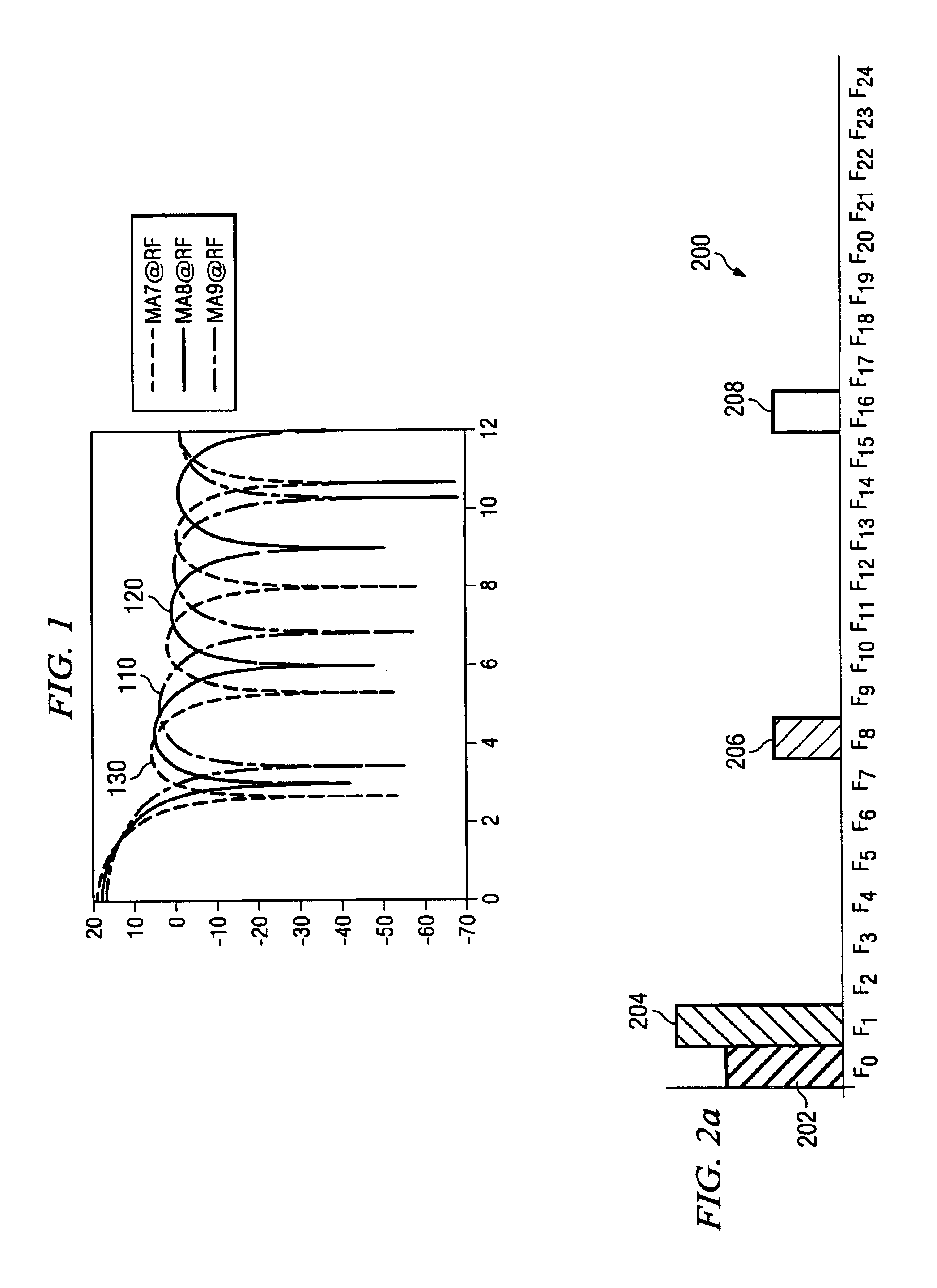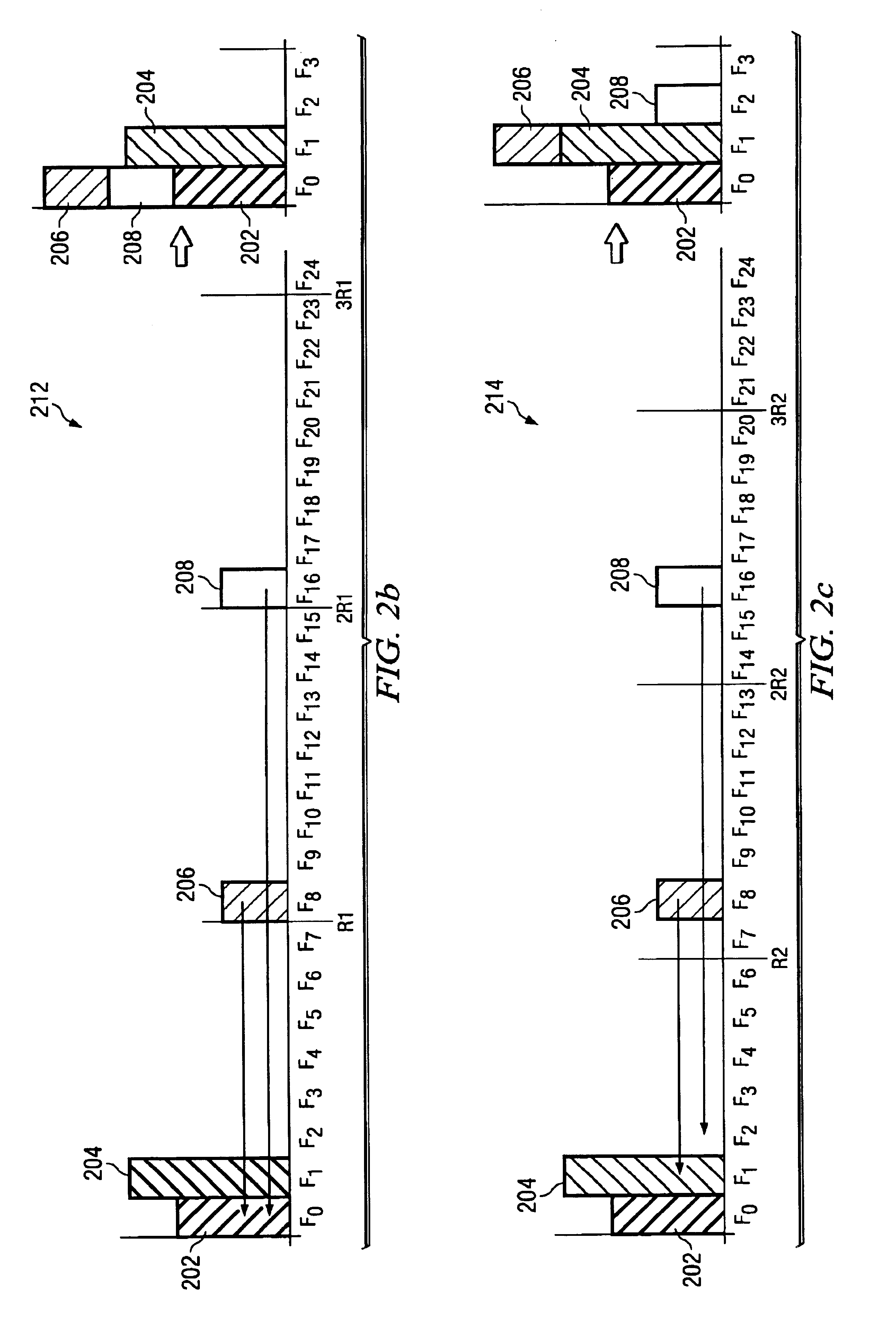Active removal of aliasing frequencies in a decimating structure by changing a decimation ratio in time and space
a decimating structure and time and space technology, applied in the field of wireless communication systems, can solve the problems of difficult integration of analog filter components into integrated circuits, interference and/or noise, and rather complex filters that are difficult to design and integrate onto integrated circuits, so as to achieve the effect of avoiding aliasing frequency components, active detection and elimination, and/or heat dissipation
- Summary
- Abstract
- Description
- Claims
- Application Information
AI Technical Summary
Benefits of technology
Problems solved by technology
Method used
Image
Examples
Embodiment Construction
The making and use of the various embodiments are discussed below in detail. However, it should be appreciated that the present invention provides many applicable inventive concepts, which can be embodied in a wide variety of specific contexts. The specific embodiments discussed are merely illustrative of specific ways to make and use the invention, and do not limit the scope of the invention.
The following discussion focuses on a particular type of radio receiver mixer and its circuitry that is operating in a 2.4 Gigahertz frequency band and is adherent to the Bluetooth technical standards. The Bluetooth technical standard specifies a short-range wireless communications network whose intended purpose is a low-power and low-cost replacement for physical cabling. The Bluetooth technical standard is specified in a document entitled “Specification of the Bluetooth System, Version 1.1, Feb. 22, 2001,” which is incorporated herein by reference. While the discussion focuses on Bluetooth ra...
PUM
 Login to View More
Login to View More Abstract
Description
Claims
Application Information
 Login to View More
Login to View More - R&D
- Intellectual Property
- Life Sciences
- Materials
- Tech Scout
- Unparalleled Data Quality
- Higher Quality Content
- 60% Fewer Hallucinations
Browse by: Latest US Patents, China's latest patents, Technical Efficacy Thesaurus, Application Domain, Technology Topic, Popular Technical Reports.
© 2025 PatSnap. All rights reserved.Legal|Privacy policy|Modern Slavery Act Transparency Statement|Sitemap|About US| Contact US: help@patsnap.com



